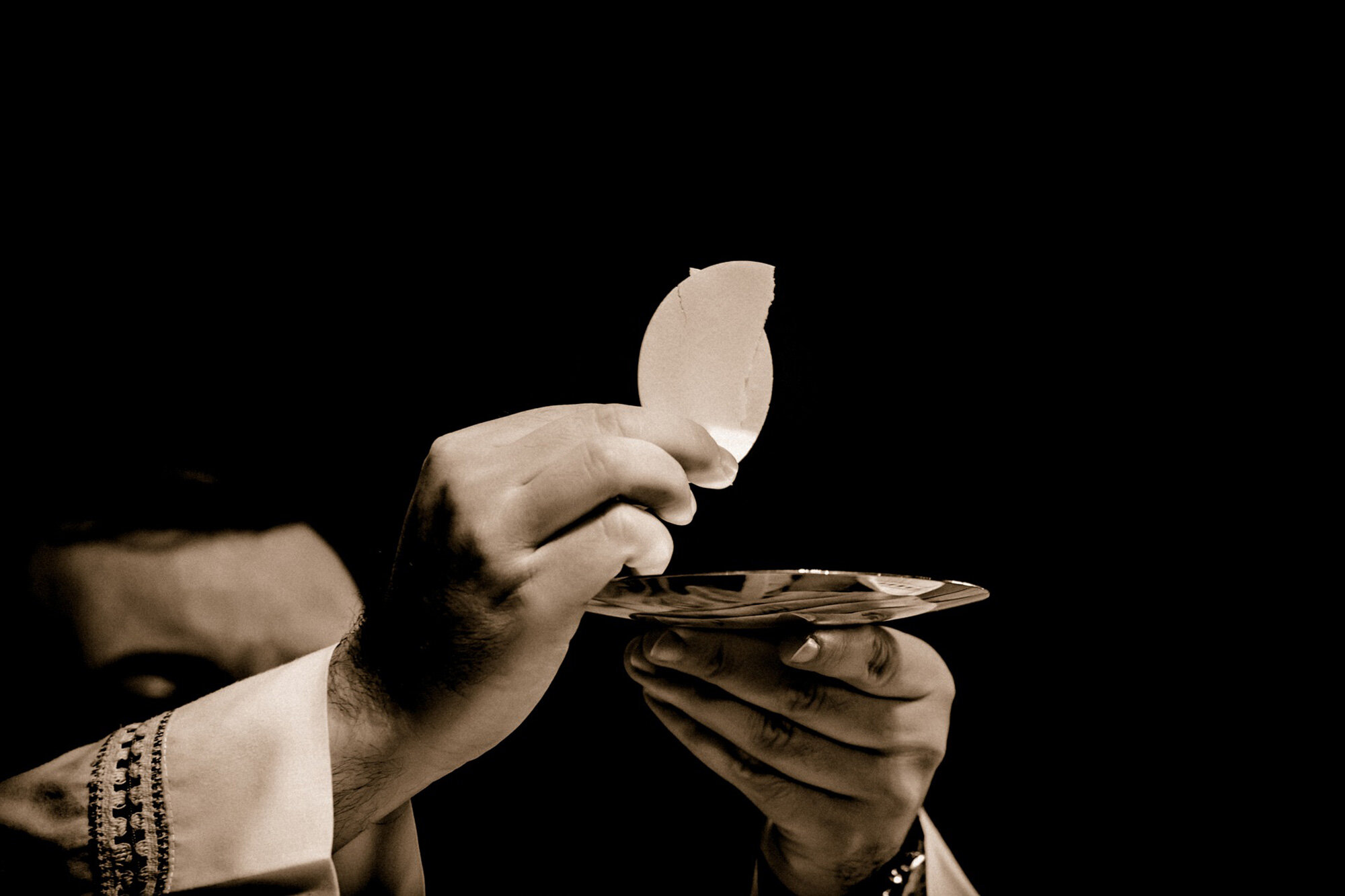
The Holy Sacrifice of the Mass
“Then he took the bread, said the blessing, broke it, and gave it to them, saying, ‘This is my body, which will be given for you; do this in memory of me.’”
The Mass is an inexhaustible source of meaning and grace. Through the sacred liturgy of the Church, the action of the Mass carries on Christ's sacrifice for our salvation, incorporates us into Christ through communion, and instructs us through God's Word.
As defined by the Church at the Council of Trent, in the Mass, "The same Christ who offered Himself once in a bloody manner on the altar of the cross, is present and offered in an un-bloody manner." Consequently, the Mass is a truly propitiatory sacrifice, which means that by this oblation "the Lord is appeased, He grants grace and the gift of repentance. For it is one and the same victim. He who now makes the offering through the ministry of priests and He who then offered Himself on the cross. The only difference is the manner of offering" (Denzinger 1743).
The Mass cannot be understood apart from Calvary, of which it is a re-presentation, memorial, and effective application of the merits gained by Christ. The re-presentation means that because Christ is really present in His humanity, in heaven and on the altar, He is capable now as He was on Good Friday of freely offering Himself to the Father. He can no longer die because He now has a glorified body, but the essence of His oblation remains the same.
The Mass is also a memorial. Christ's death is commemorated not only as a psychological remembrance but as a mystical reality. He voluntarily offers Himself, the eternal high priest, as really as He did on Calvary.
The Mass is, moreover, a sacred banquet or paschal meal. The banquet aspect of the Mass is the reception of Holy Communion by the celebrant and the people, when the same Christ who offers Himself to the Father as a sacrifice then gives Himself to the faithful as their heavenly food. By Communion, in fact, the faithful share more fully in the Eucharistic Sacrifice. In this way they are not limited to sharing in the sacrifice by faith and prayer, nor to merely spiritual communion with Christ offered on the altar, but receive Christ Himself sacramentally, so as to receive more fully the fruits of this most holy sacrifice.
“And likewise the cup after they had eaten, saying, ‘This cup is the new covenant in my blood, which will be shed for you.’”
Finally the Mass is the divinely ordained means of applying the merits of Calvary. Christ won for the world all the graces it needs for salvation and sanctification. But these blessings are conferred gradually and continually since Calvary and mainly through the Mass. Their measure of conferral is in proportion to the faith and loving response of the faithful who unite themselves in spirit with the Mass.
It is in this sense that the Mass is an oblation of the whole Mystical Body, head and members. Yet, among the faithful, some have been ordained priests and their role in the Mass is essentially different from that of the laity. The priest is indispensable, since he alone by his powers can change the elements of bread and wine into the body and blood of Christ. Nevertheless the role of the participants is of great importance; not as though there would be no Mass without a congregation but because the people's "full, active and conscious participation will involve them in both body and soul and will inspire them with faith, hope and charity." The more active this participation, the more glory is given to God and the more grace is bestowed not only on the Church but on all the members of the human race.
Holy Days of Obligation
See the 2024 Holy Days schedule on the Events webpage.
Latin Mass
The Extraordinary Form - also known as Traditional Latin Mass - is offered at the Cathedral on Tuesdays at 5:30 p.m. for Low Mass and Sundays at 1:30 p.m. for High Mass. Also, on Holy Days and Special Feasts. Check bulletin for times.
Spanish Mass
A weekly Spanish Mass is held on Saturdays at 6:30 p.m. Also, on Holy Days and Special Feasts. Check bulletin for times.
Liturgical Music
Currently on weekends, there is music at the 4:30 p.m. Vigil Mass, the 9:00 a.m. Mass, the live-streamed 10:30 a.m. Mass, 12 noon Mass, the 1:30 p.m. Latin Mass, and for select Masses on Holy Days. Questions about music at the Cathedral can be directed to the Pastor by calling the Parish Office at 542-6984 or ask to be put in contact with the Cathedral Music Director, Pamela Zieminski.
4:30 p.m. Saturday with cantor
7:30 a.m. Sunday
9:00 a.m. Sunday with music
10:30 a.m. Sunday with music
12:00 p.m. Sunday with music
1:30 p.m. Sunday with music
5:30 p.m. Sunday


